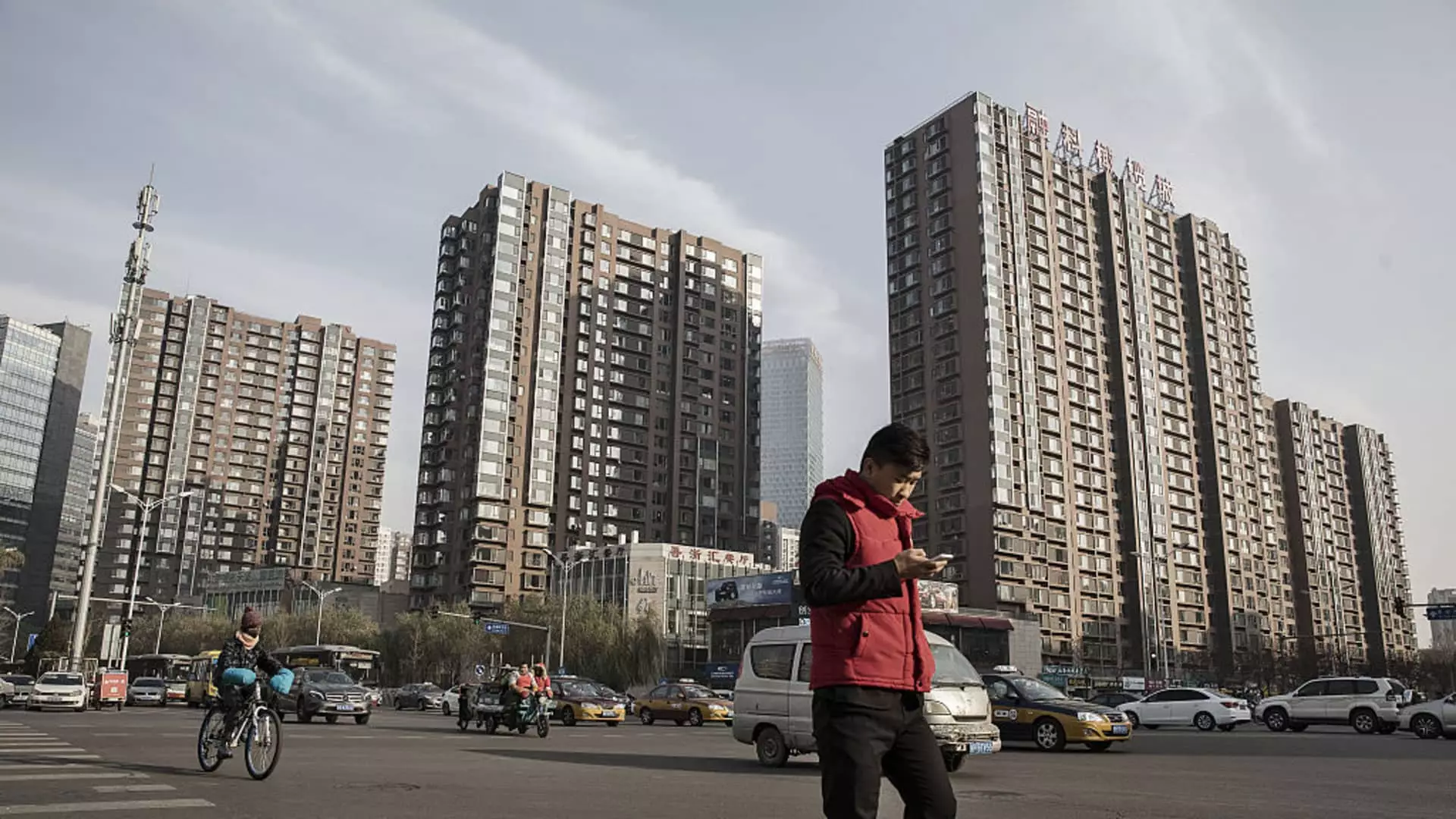Revitalizing China’s Real Estate Landscape: A Shift in Economic Strategy

In response to significant economic pressures, the Chinese government has recently outlined a series of initiatives aimed at rejuvenating its beleaguered real estate sector. During a press conference, Ni Hong, the Minister of Housing and Urban-Rural Development, announced a commitment to ramp up financial support for select real estate projects, notably those classified as part of the government’s “whitelist.” This decision involves expediting a colossal 4 trillion yuan (approximately $561.8 billion) in loans to support these targeted developments. The move is seen as a strategic pivot towards stabilizing the economy and addressing ongoing challenges within the property market.
What underlies these developments is a recognition that the real estate sector, a crucial pillar of China’s economic growth, has been struggling under the weight of heavy debt and regulatory constraints. As part of a broader strategy to stimulate economic activity, the government has approved approximately 2.23 trillion yuan in loans to whitelisted developers, with expectations that this figure will rise significantly by year-end.
Investor confidence received a palpable jolt from the government’s recent announcements, as evidenced by a notable surge in property stocks. The Hang Seng Mainland Properties Index recorded an impressive increase of over 2%, while the CSI 300 index reflected similar trends with nearly a 5% rise. This optimistic market response signals a renewed belief among investors that government intervention could effectively revive the struggling real estate market, which has seen an alarming decline of more than 80% from its peak in January 2020.
However, market behavior has not been entirely straightforward. There remains a pronounced volatility in Chinese stocks, primarily stemming from mixed signals regarding the government’s commitment to implementing substantial economic stimulus measures. While the recent press conference marked a high point of optimism, it was preceded by anxieties and uncertainties regarding the actual impact of the announced policies.
In conjunction with broader initiatives from the central government, local authorities are also mobilizing resources to alleviate the challenges faced by the real estate sector. Recent measures include the provision for local governments to issue special bonds earmarked for land purchases, alongside the introduction of flexible housing subsidies that now cover existing inventory. This marks an important shift away from the previous emphasis on new constructions, indicating a responsive strategy that acknowledges the changing dynamics of the housing market.
Cities such as Guangzhou, Beijing, and Shanghai have begun relaxing restrictions on home purchases, seeking to kindle interest among potential buyers. The removal of homebuying restrictions for non-local residents combined with lowered down payment ratios forms a mosaic of efforts aimed at invigorating consumer confidence in the property market.
China’s real estate sector, once a robust contributor to its economy, has been in a state of tumult since 2021, catalyzed by a government crackdown on excessive debt and irresponsible lending practices. The fallout from this regulatory tightening has been pronounced, with multiple developers struggling to meet financial obligations, leading to defaults and unfinished projects. This downturn has consequently dampened consumer confidence, pushing new home prices to experience their sharpest decline in almost a decade.
As part of a multifaceted economic stabilization strategy, the People’s Bank of China has also taken steps to adjust monetary policy, including a cut to the reserve requirement ratio for banks. This move is intended to increase liquidity within the banking system, facilitating the flow of capital necessary for distressed developers to continue operations and complete projects.
Latest statistics reveal that new home prices dropped at a staggering rate, underscoring the urgency for effective interventions. According to data published by the National Bureau of Statistics, the value of new homes sold has witnessed a 23.6% year-on-year decline, reflecting broader trends of market hesitation. Such figures are troubling, particularly as average home prices have plummeted by 6.8% from the previous month.
In light of these trends, the government’s commitment to stabilize the real estate market indicates a potential turning point. Analysts are closely monitoring the efficacy of these policies in reversing the downward trajectory and reigniting buyer interest. The overarching question remains whether these interventions can adequately bolster market confidence and lay the groundwork for a sustainable recovery in China’s vital real estate sector.





